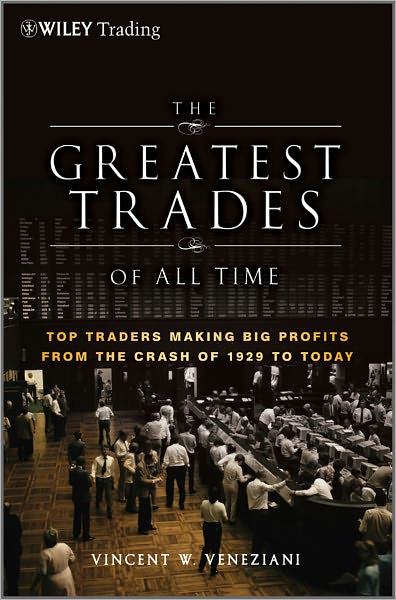This book grew on me. Think of it as “How I hit a home run in investing.”? Who are the sluggers that earned outsized returns?
But, there is a problem here, and the book would have been better if it had recognized the problem.? In a few cases, the “greatest” made one (or a few) good decisions.? In more cases, they made many good decisions that compounded over time.
Was the first group lucky? Maybe, but when things work out for the reasons that you specify in advance, I think not.? The problem of the first group is repeatability, which for John Paulson, is proving to be an issue for his asset management shop at present.
The investment markets are cruel.? No matter what you have done in the past, the question comes, “What have you done for me lately?” The pressure is high, so no wonder that one of the investors that the book mentioned has gone into hiding.
There are two more dimensions here.? Imagine an investor that made some amazing gains , but then craters.? There are some brilliant investors for which that has been true: Livermore, Niederhoffer, Keynes, and more… how much credit should we give to the gains, if the price is flameouts?
Second, imagine someone who is the best in class at a low-return area of the asset markets, like Jim Chanos in short-selling, or Bill Gross at Pimco.? They may not earn that much, but the skill level is really high.? But is the skill level so high when they chose areas of the market to work in that are low -return?
Maybe the book should have featured private equity players, or real estate investors, or those that have managed university endowments well… there are other investors that would be comparable or better to the returns of some in this book.
Or ask, where is Buffett?? He would deserve a spot here, not for any one trade, but for the multitude of clever trades and mergers he has done over the years.
Quibbles
The book needed a better editor.? Information on Templeton is repeated.? Beyond that, most of the ideas on how an average investor could try to replicate the strategies of the great investors are akin to drinking near-beer.? They are too weak, but on the other hand, without the brilliance of the investors, an average person would not know when to but and sell.
With those caveats, I recommend the book highly.? It is well-written, and it will fill out knowledge gaps in amateur investors.
Who would benefit from this book: Most investors would benefit from this book.? If you want to, you can buy it here: The Greatest Trades of All Time: Top Traders Making Big Profits from the Crash of 1929 to Today (Wiley Trading).
Full disclosure: The publisher asked if I wanted the book.? I said ?yes? and he sent it to me.
If you enter Amazon through my site, and you buy anything, I get a small commission.? This is my main source of blog revenue.? I prefer this to a ?tip jar? because I want you to get something you want, rather than merely giving me a tip.? Book reviews take time, particularly with the reading, which most book reviewers don?t do in full, and I typically do. (When I don?t, I mention that I scanned the book.? Also, I never use the data that the PR flacks send out.)
Most people buying at Amazon do not enter via a referring website.? Thus Amazon builds an extra 1-3% into the prices to all buyers to compensate for the commissions given to the minority that come through referring sites.? Whether you buy at Amazon directly or enter via my site, your prices don?t change.


2 thoughts on “Book Review: The Greatest Trades of All Time”
Comments are closed.